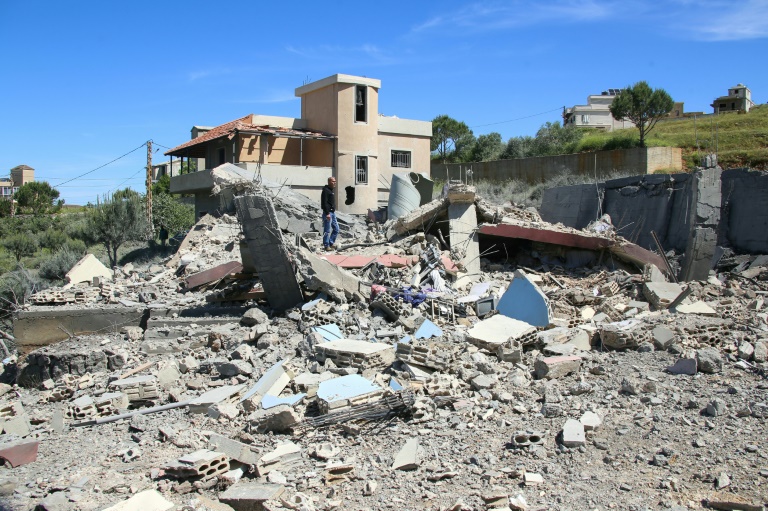Lebanon body puts Israeli bombardment damage at $1.5 bln

A house destroyed in an Israeli air strike on the village of Kfar Hamam in southern Lebanon where officials estimate the damage from Israeli bombardment in seven months of cross-border hostilities at $1.5 billion
Beirut – Israeli bombardment of south Lebanon in seven months of cross-border hostilities with Hezbollah has caused more than $1.5 billion in damage, a Lebanese official said on Wednesday.
Lebanon’s powerful Hezbollah movement began attacking Israel in support of ally Hamas a day after the Palestinian militant group’s unprecedented October 7 attack on Israel that sparked war in the Gaza Strip.
Hezbollah has stepped up its attacks in recent weeks, while Israel’s military has struck deeper into Lebanese territory, saying it has targeted fighters and “infrastructure” used by the Iran-backed group.
Lebanon’s Southern Council, an official body tasked with assessing the destruction, has estimated that since October 8, the cost of “damage to buildings and institutions stands at more than one billion dollars”.
Infrastructure, including water, electricity, roads and health services have also suffered damage estimated at around an additional $500 million, according to the figures provided by council chief Hashem Haidar.
The information used to make the assessment was mostly gathered by “our teams on the ground”, Haidar said.
With the hostilities ongoing, the estimates do not include all the destruction in particularly hard-to-reach areas, where the council relies on “engineers and municipality chiefs and local officials” for information, he added.
The Southern Council estimates that some 1,700 buildings have been completely destroyed, while around 14,000 have been damaged.
Emergency personnel have reported huge damage and villages emptied of residents.
The International Organization for Migration says more than 93,000 people have been displaced in Lebanon, while Israel has evacuated tens of thousands of people from swathes of the country’s north.
Many journalists have been reluctant to travel to Lebanon’s border areas due to the heavy bombardment, while damage to some roads makes reporting trips more difficult.
The bombardment has also impacted farmland and livelihoods, with Lebanese authorities accusing Israel of using incendiary white phosphorus bombs that have triggered fires.
Authorities are waiting for a ceasefire in order to better assess the damage, but potential compensation procedures remain vague in a country suffering a crushing four-year economic crisis.
After Israel and Hezbollah fought a devastating war in 2006, Gulf countries and Iran helped with reconstruction efforts, and Lebanese officials in recent months have expressed hope for foreign support this time around as well.
The cross-border violence has killed at least 390 people in Lebanon, mostly militants but also including more than 70 civilians, according to an AFP tally.
Israel says 13 soldiers and nine civilians have been killed on its side of the border.
